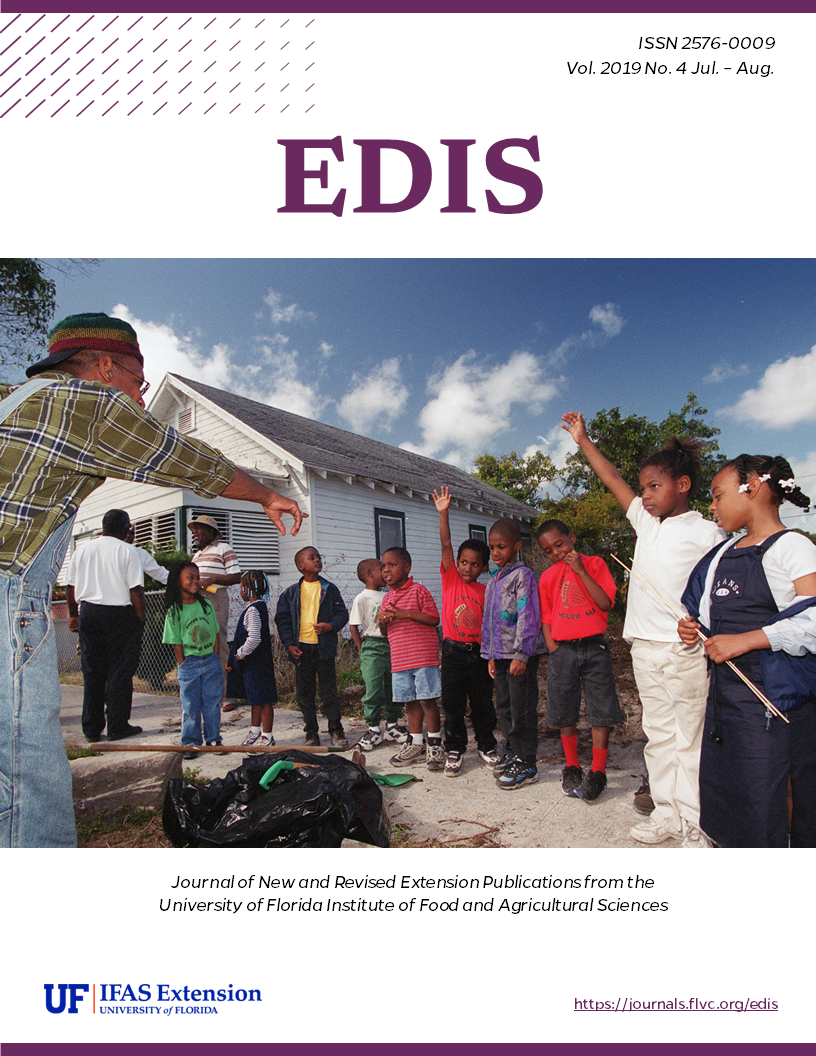Abstract
The salvinia weevil, Cyrtobagous salviniae (Calder & Sands) (Coleoptera: Curculionidae) (Figure 1), is a subaquatic (underwater) herbivorous insect native to Brazil (Calder and Sands 1985). This insect feeds on the invasive aquatic plants Salvinia molesta D. S. Mitchell and Salvinia minima (Baker). This insect is an effective classical biological control agent used in several countries to control the invasive giant salvinia, Salvinia molesta (D. S. Mitch). Feeding by Cyrtobagous salviniae larvae and adults kills its invasive host plants and restores recreational, agricultural, and ecosystem functions in aquatic systems. In the United states, the insect has been credited for controlling Salvinia minima in Florida (Jacono et al. 2001) and causing the decline of Salvinia molesta in Texas and Louisiana (Tipping et al. 2008).
Unless otherwise specified, articles published in the EDIS journal after January 1, 2024 are licensed under a Creative Commons Attribution-NonCommercial-NoDerivs 4.0 International (CC BY-NC-ND 4.0) license.

